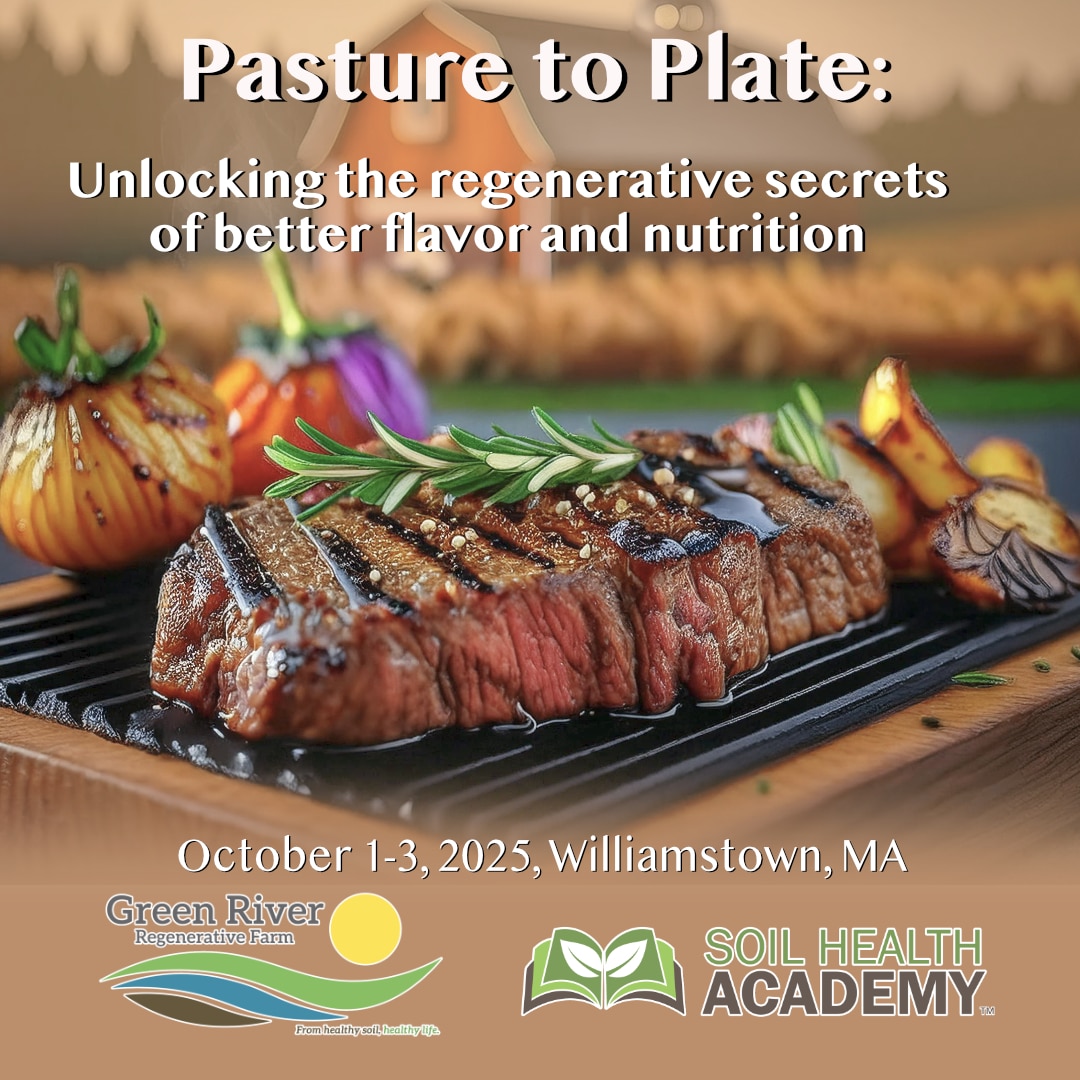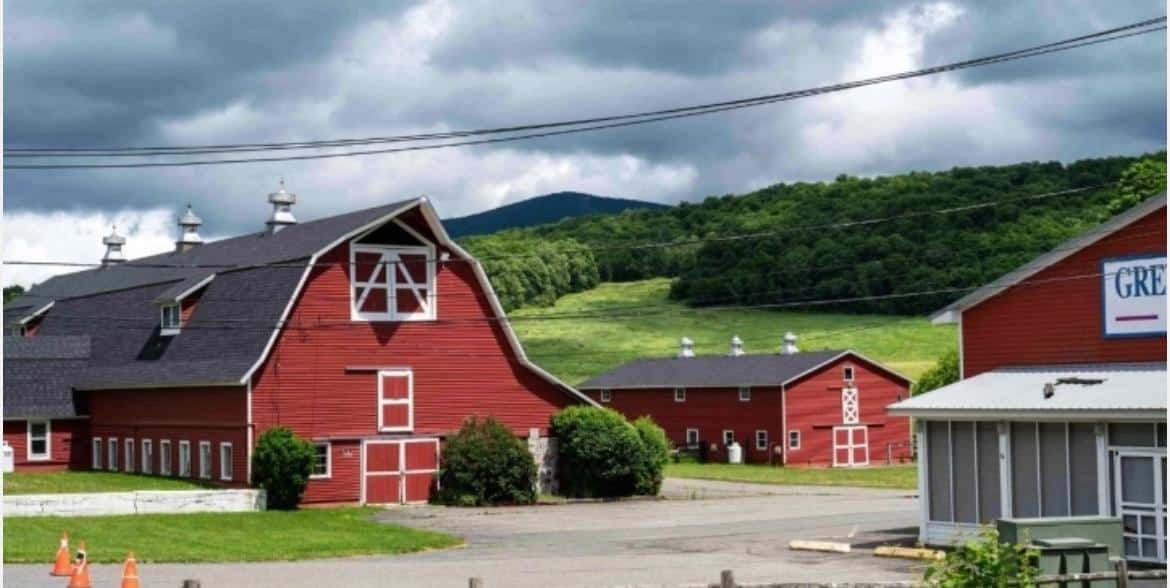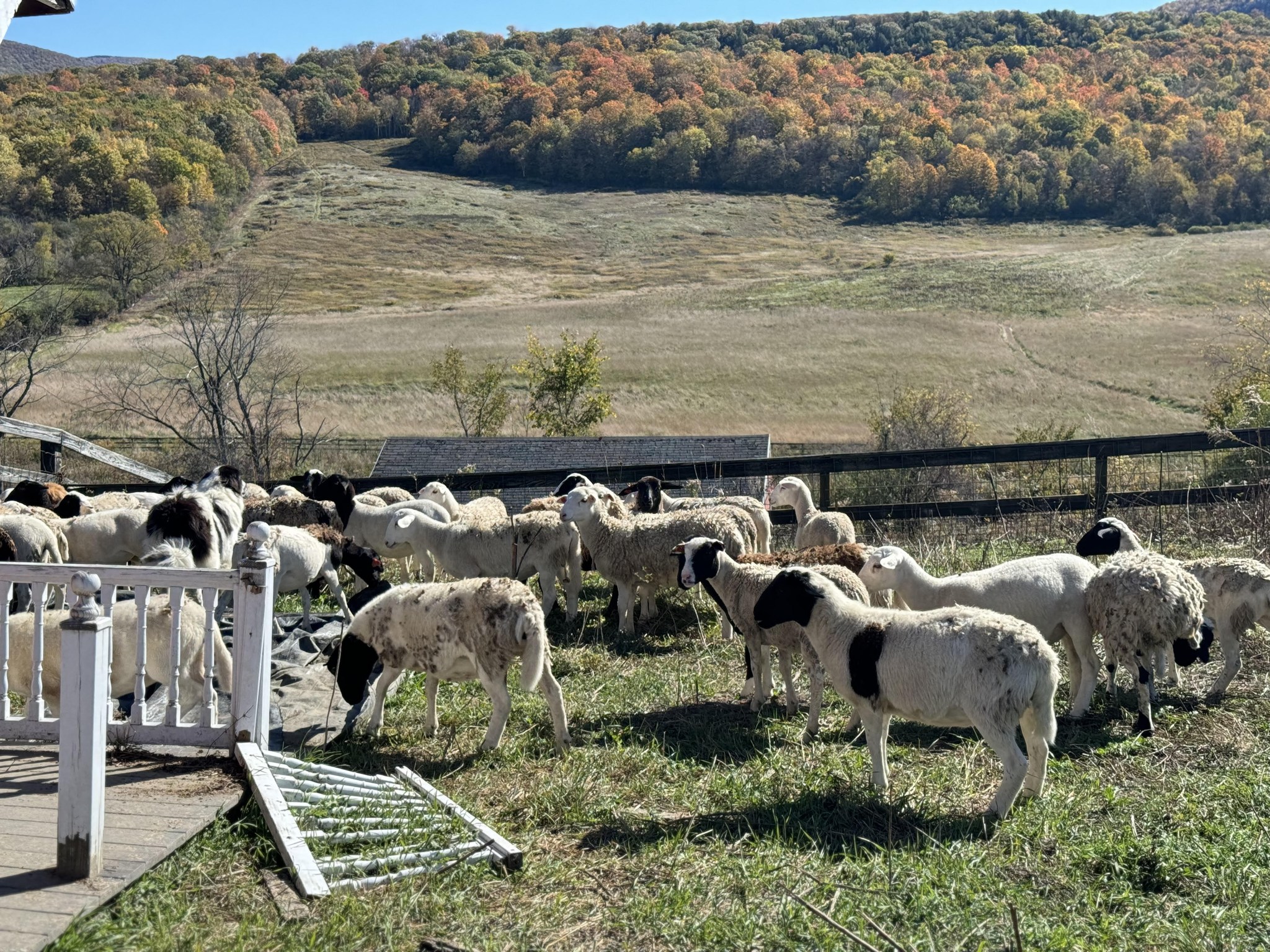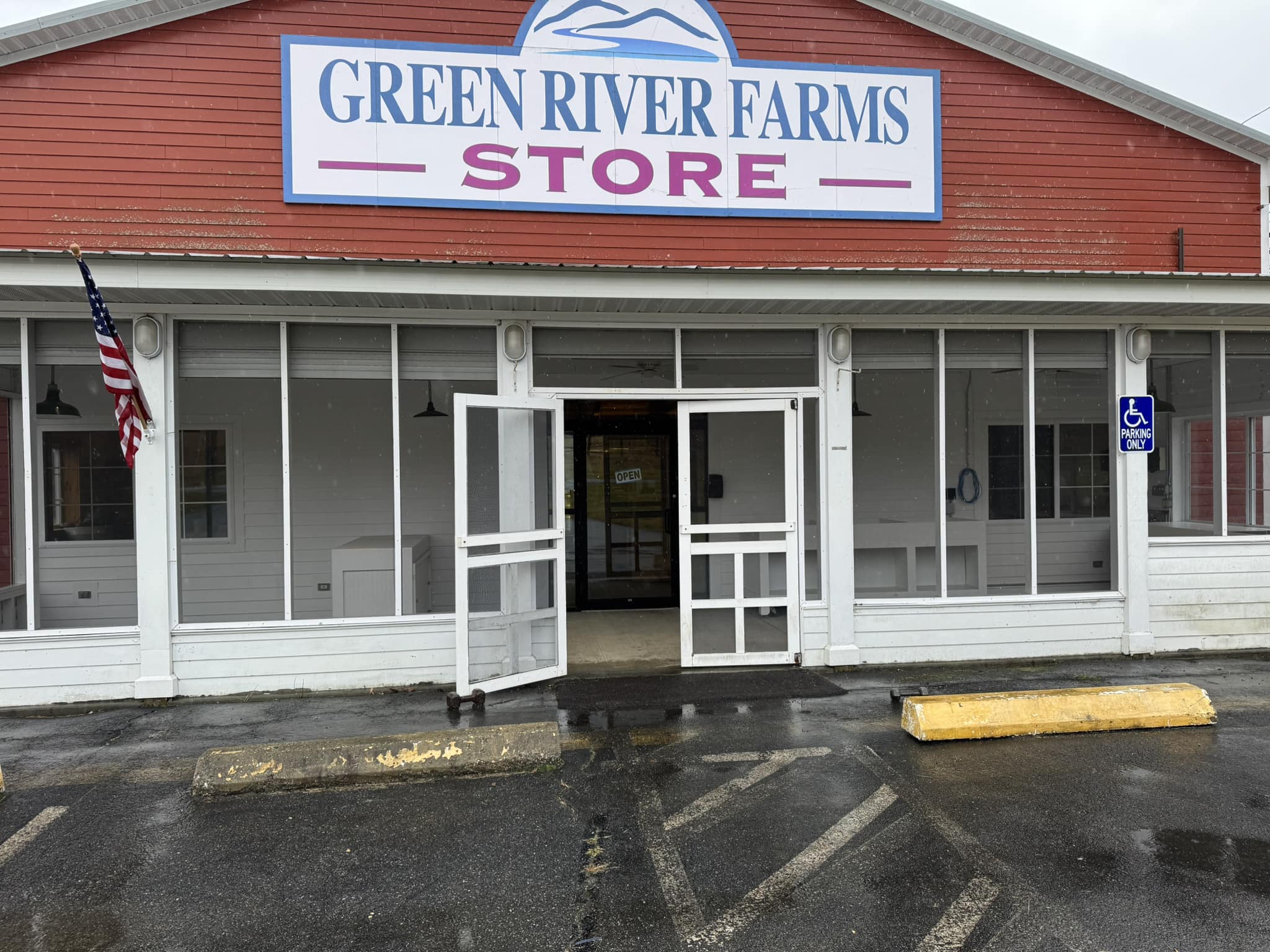October 1-3, 2025
Williamstown, MA
Green River Regenerative Farm

About the Academy
What You Will Learn
- Discover how regenerative farming improves food nutrient density and quality
- Explore the direct connection between healthy soils and better nutrition
- Learn how regenerative agriculture restores ecosystems and promotes well-being
- Understand how healthy soils lead to improved nutrition, overall quality of life, and revitalized communities
- Gain hands-on experience of how to incorporate regenerative farming practices in your own garden, homestead, or farm
- Understand how food grown in healthy soils enhances nutrition, wellness, and vitality
Who Should Attend?
This academy is for anyone interested in learning how soil health and regenerative farming practices can directly impact nutrient density ad quality of our foods. This course is for anyone who is a parent, healthcare professional, educator, chef, restauranter, grocery wholesaler, community leader, or simply someone passionate about nutrition and food quality. This course is for anyone committed to fostering a healthier planet and improving the health of individuals and communities through regenerative agriculture and soil health practices.
Keynote Speaker
Stay tuned! Our keynote speaker will be announced soon.
Registration & Getting There
Cost of Tuition
Tuition of $1,400.00 includes
• In-person attendance at the SHA, along with course materials, daily snacks, water, and lunch each day
• Access to quarterly alumni Q&A conference calls with SHA instructors and the graduate portal on the SHA website
Cancellation Policy
The down deposit of $500 is non-refundable, but can be transferable toward any academy held in 2025 or 2026.
Financial assistance through scholarships are available to help with the cost of tuition. To apply for a scholarship, please register for the academy, then submit a scholarship application.
Scholarships are made possible thanks to the generous support of private organizations and individual donors.
Classroom & Farm Location
Classroom
The Williams Inn
101 Spring St.
Williamstown, MA 01267
Farm
Green River Regenerative Farm
2480 Green River Road
Williamstown, MA 01267
Hotel Information
The Williams Inn
101 Spring St.
Williamstown, MA 01267
Lodging costs are separate from tuition. While it is not mandatory to stay at the accommodations listed here, we encourage attendees to book nearby lodging for the convenience of traveling to the classroom and farm locations.
Closest Airport
Albany International Airport
737 Albany Shaker Rd,
Albany, NY 12211
Meet the Host Farm

Meet Green River Regenerative Farm
In 2024, Green River Regenerative Farm, Inc., the new owner of the 235-acre farm, launched a high-level regenerative agricultural education and training program while expanding the farm’s regenerative cropping and livestock production systems. The farm is currently leased and managed for day-to-day operations, with plans for shared farm production profits once operations are fully underway.
Formerly known as Modern Dairy, the Langer Farm, and Green River Farms, the property sits on land once used for farming and as hunting grounds by the Mohican people, and later settled by former British soldiers garrisoned at Fort Massachusetts and Fort West Hoosac.


The farm lies in the western shadow of Mount Greylock, the highest point in Massachusetts, with the Green River running through it on its way north to the Hoosick River, which eventually joins the Hudson River. The agricultural history of this area—the Berkshires of Massachusetts—is rooted in wool and dairy production, along with industries such as leather, timber, spinning, and cheese-making. These value-added products were historically transported west to the Hudson River, just 30 miles away, providing access to major markets in Albany and the upper Hudson Valley.
The farm’s mission is to operate as a profitable, working regenerative farm that also serves as a demonstration model and learning center for students and practitioners of regenerative agriculture. The farm also aims to support research that validates the ecological, economic, and community health benefits of soil health–focused regenerative practices.
